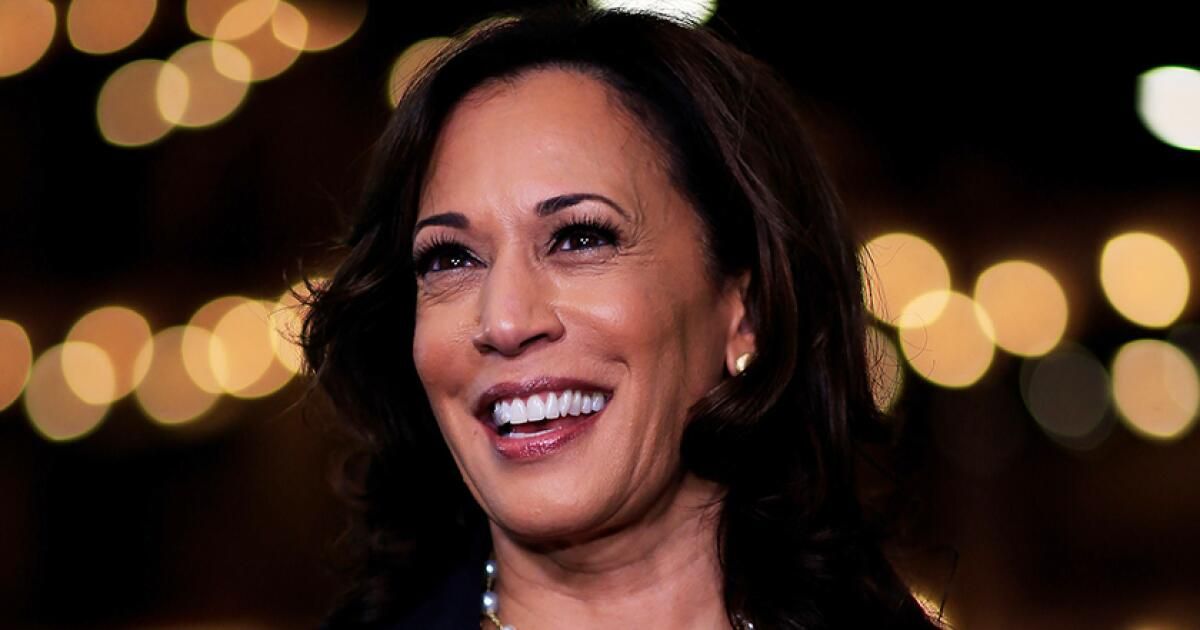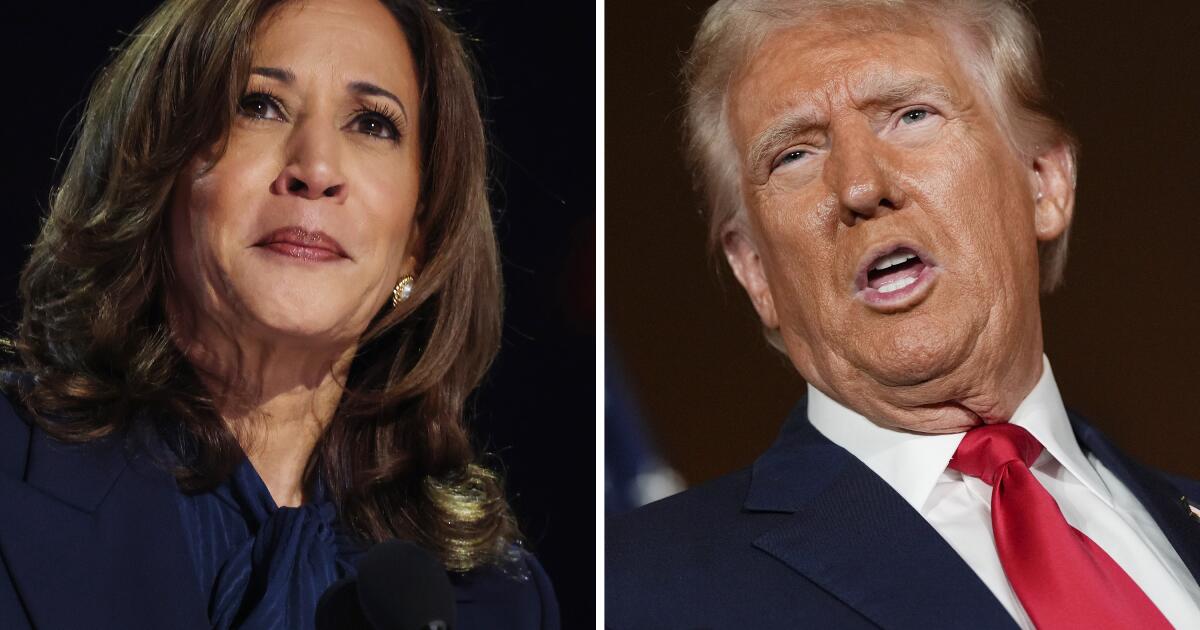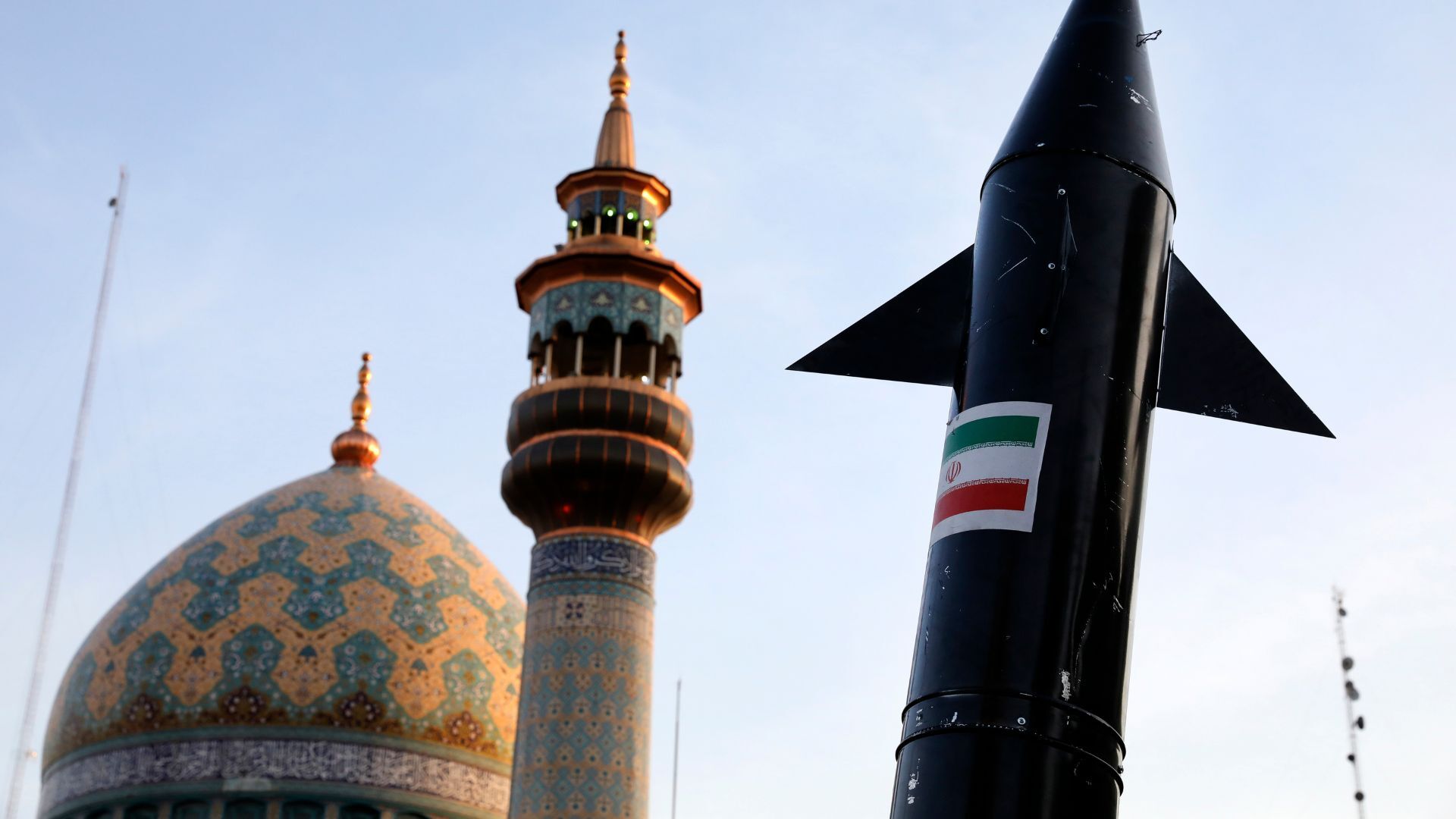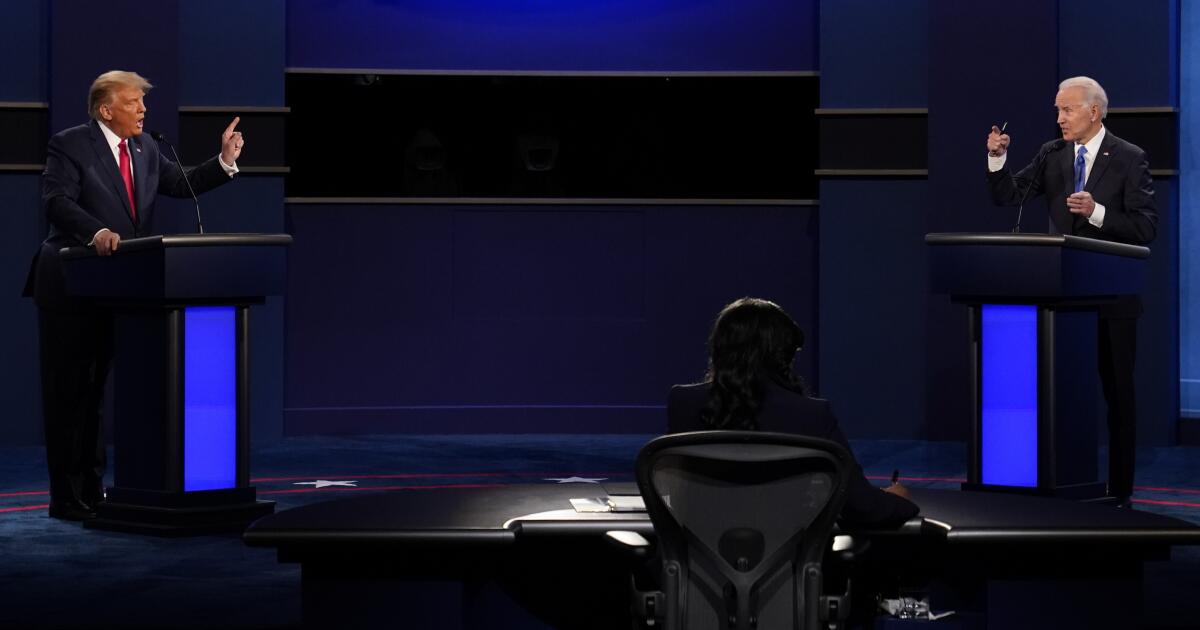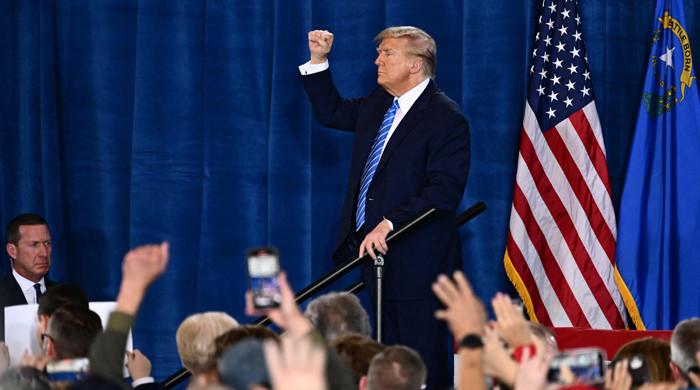President Biden has ended his re-election bid and endorsed Vice President Kamala Harris to take the top spot as the Democratic Party's new nominee.
But with less than four months to go until the election, what happens next? Here's what we know.
Is Harris automatically the next Democratic nominee?
No.
Moments after announcing his withdrawal in a letter to the American people, Biden sent a second message giving Harris his “full support and endorsement.”
Still, the candidate must be chosen by the party. Harris acknowledged this in a statement, saying she intends to “win this nomination.”
Thanks to his victories in Democratic primaries and caucuses in states and territories across the United States, Biden has gathered nearly 4,000 party delegates who have pledged to vote for him to be the party's nominee at the Democratic National Convention, which is scheduled to begin on August 19 in Chicago.
Her exit from the race means those delegates are now free to choose another candidate. They are not committed to Harris.
Choosing a new candidate will be their main task at the convention.
Jaime Harrison, the party's chairman, said in a statement Sunday that “the work we must do now, while unprecedented, is clear.”
Harrison said the party would “conduct a transparent and orderly process” to select a new candidate that would “be governed by established Party rules and procedures.”
He said the party would provide more information on “next steps and the way forward” “shortly”.
How will the Democratic National Convention work now?
Alice Travis Germond, who served as secretary of the Democratic National Committee for years, said that while delegates will now be “free to vote their conscience,” they will also be under enormous pressure from party influencers, state governors and advocacy groups.
These party stalwarts “have enormous influence over the delegates” and will have their own feelings about who the next nominee should be, Germond said.
Amy K. Dacey, executive director of the Sine Institute of Politics and Policy at American University and a former executive director of the Democratic National Committee, said a candidate can secure the party’s nomination with a simple majority of pledged delegates — more than 1,900 — voting for him in the first round of voting.
Dacey said he was watching closely to see if party officials and other political influencers would rally behind Harris.
“All those people who called for Biden to resign, are they going to use their voices now to say that they support Harris or are they waiting?” he asked.
Newsletter
Get the LA Times Politics Newsletter
In-depth perspectives on legislation, politics and policy from Sacramento, Washington and elsewhere. In your inbox three times a week.
You may occasionally receive promotional content from the Los Angeles Times.
If Harris can build up a substantial amount of support quickly, the process going forward would be fairly straightforward, Dacey said.
However, if other potential nominees come forward, today's open convention could also turn into a contested convention.
In this scenario, a candidate would have to prove they have the support of at least 300 delegates to get their name on the convention ballot, Dacey said. Anyone interested in being nominated now has a small window to build up that support, and is likely already testing the waters among delegates.
If more than one candidate runs, he said, the convention “becomes a kind of mini-primary.”
What will be California's role?
Serious candidates will try to build support, especially from large delegations, and California, with 496 delegates, is the party's largest.
Harris’ team is certainly doing this kind of outreach to large delegations and other delegates who had already committed to Biden. “This becomes a kind of campaign for the vice president,” Dacey said.
Rusty Hicks, chairman of the California Democratic Party, sent a message to California delegates on Sunday asking them to support Harris.
“I am calling on the delegates from our great state of California and home of our Vice President, Kamala Harris, to officially endorse her nomination for President of the United States at the convention in Chicago,” Hicks wrote, before including a link to a form they should fill out to register their support.
What is a superdelegate?
There is also another type of delegate: superdelegates, which are elected Democrats and officials from around the country. In other words, party members.
There are about 700 of them, including Biden himself, and they are not linked to any candidate.
Superdelegates cannot vote on the first ballot to nominate a Democratic presidential candidate unless a candidate is determined to have an absolute majority of pledged delegates backing him or her. Biden would have had such a majority, but Harris or some other candidate is less likely to have it.
Again, Dacey said he will be watching to see if party members and superdelegates begin to line up behind Harris.
They could have a substantial influence on how the process plays out from here, especially if they appear unified.
“Will there be a merger among the superdelegates?” Dacey asked.
Paul Weich, an Arizona writer and attorney (and delegate), said he thinks Harris will give the Democratic Party a much better chance of winning in key states, including his own.
“I’m proud to be a Biden-Harris delegate today. Today I become a Harris-whoever delegate,” Weich said. “Every political fanatic always wants an open convention, and I’ve always been one of them, too. But I think it’s a clear choice that right now … Kamala Harris needs to be the nominee, and I don’t think it’s going to be an open convention.”
What happens after the convention?
Once the party has selected its nominee, that person will face former President Trump in November.
Republicans have signaled they will challenge Democrats' decision to replace Biden at this late stage, based in part on Biden's victory in state primaries.
“Every state has its own system, and in some of them it’s not possible to just change a candidate,” House Speaker Mike Johnson said Sunday on ABC’s “This Week.”
Dacey said that argument is baseless and loses from a legal standpoint.
While Biden was the party's presumptive nominee before Sunday, he was never formally nominated, he said, just as Trump was not the formal Republican nominee until that party's convention last week.
Democrats “are going into the convention trying to figure out who the Democratic nominee is, who’s going to be on the ballot,” Dacey said. It’s “the usual process” and exactly what the GOP just did.
“They have nothing to object to,” he said.

